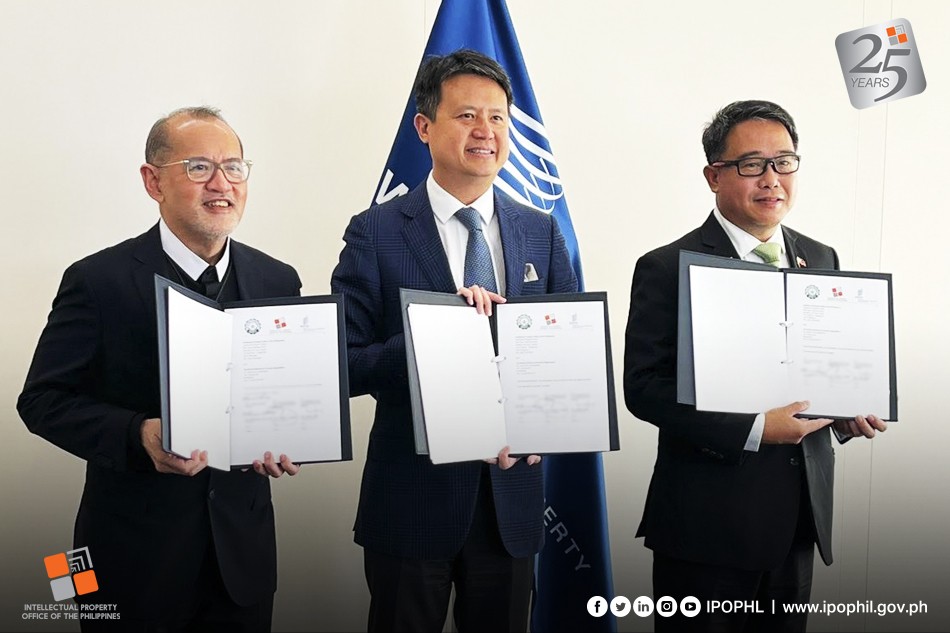
IPOPHL, DLSU and WIPO to develop Asia’s first Masters Program on IP Management and Innovation
July 28, 2022
The Intellectual Property Office of the Philippines (IPOPHL) has partnered with the De La Salle University (DLSU) and the World Intellectual Property Organization (WIPO) to offer a Joint Masters on Intellectual Property Management and Innovation (MIPMI) in 2023, a move that aims to develop more intellectual property (IP) professionals and respond to increasing creations and applications for IP products and services.
The envisioned MIPMI will be the first program in Asia and also the first WIPO-supported postgraduate program to focus on managing IP assets and innovation toward successful commercialization.
The different subjects included in this masters program will be delivered by a roster of local and international experts in IP. Immersive and applied learning methodologies will also be implemented to achieve effective learning for students.
“With increased IP filings activities, we see an incredible demand for IP professionals who can provide sound advice and assistance in strategically protecting and commercializing high-value IP assets,” IPOPHL Director General Rowel S. Barba said at the signing of the memorandum of understanding (MOU) held July 21, 2022 in Geneva at the sidelines of the WIPO General Assemblies.
“This Joint Master’s on IP Management and Innovation will fulfill that demand by honing globally competent IP practitioners with rigorous multidisciplinary training on law, science and business,” he added.
Under the MOU, IPOPHL, DLSU and WIPO commit to develop the MIPMI with the aim of producing high-caliber IP professionals equipped to help IP assets contribute to economic, social and cultural development.
With MIPMI being a multidisciplinary program, students can gain a broader perspective of IP and the opportunity to network with IP and innovation experts.
WIPO Director General Daren Tang noted that with the dynamism in Asia when it comes to IP filings, it is time to bring IP to the larger community in society and not just IP education for the IP and legal community. He also lauded the joint effort to develop MIPMI, emphasizing that “IP management can be learned” and must not be left to chance.
In the future, he hopes that universities around the world that offer postgraduate programs in IP could meet and harmonize their offerings as a global innovation community.







